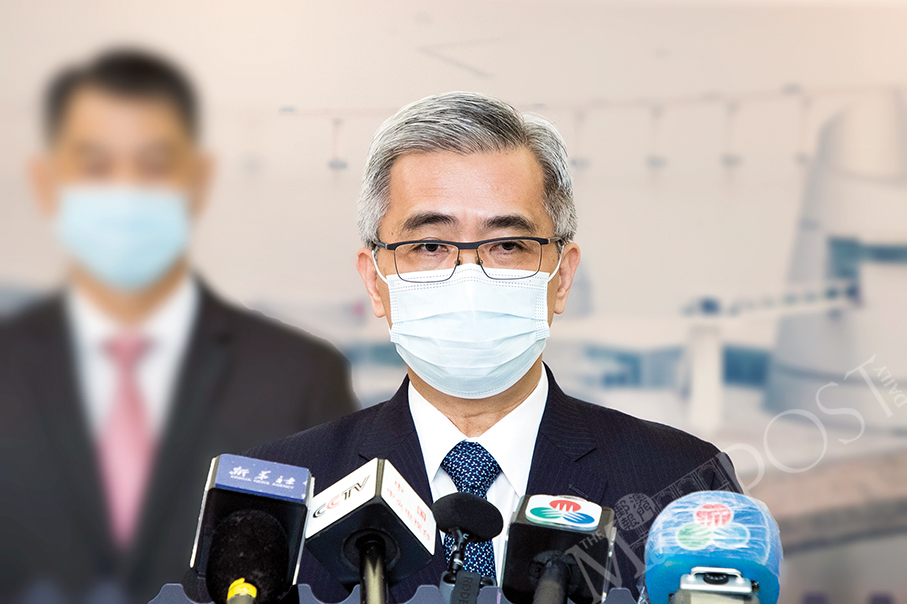Editorial
I am convinced that dialogue across the table is not just indispensable in personal but also in international relations.
The direct impact of a face-to-face, eye-to-eye meeting in the same locale within a short distance from one other, perhaps with just a glass of water or a cup of coffee or tea and a few dainty morsels on the table between the interlocutors, is irreplaceable. Anyone who has attended a webinar knows that. Online video conferencing has been useful during the COVID-19 pandemic but, I am convinced, it can never replace the effectiveness of in-person meetings – between state leaders in particular.
That’s why German Chancellor Olaf Scholz’s meetings with President Xi Jinping and Premier Li Keqiang in Beijing on Friday were the right way forward. The meetings took place despite the more or less vociferous, more or less diplomatic opposition by an unholy alliance of political forces in Washington, Paris, Brussels and Berlin – including two of Scholz’s three-party coalition’s two junior partners – the Greens and the Liberals (FDP) – and even some segments of his Social Democratic Party (SPD), as well as, small wonder, the opposition Christian Democrats (CDU/CSU).
Most regrettably, certain politicians and media in the West are pushing, once again, the “Chinese threat theory”, which has its origins in the 19th century when European colonial expansion was at its height. Early this year, the European Union came up with the term “systemic rivalry” to describe its relationship with China. For me, it sounds like a poorly disguised euphemism for “China threat”.
Scholz, a 64-year-old lawyer by profession, ex-mayor of Hamburg and vice-chancellor and finance minister under his predecessor Angela Merkel, is widely regarded as a political moderate.
My impression is that he is realistic enough to understand that it would be hare-brained for an export-dependent country like Germany to decouple or even just to de-intensify its strong trade, economic and investment ties with China.
China and Germany are the world’s top and number-three exporters respectively, and they are the world’s number-two and number-three importers respectively. Together with the US they are among the world’s top three trading nations.
Germany’s relatively high standard of living would be impossible without its position as a global trade giant – and China has been Germany’s largest trading partner for the past six years, and by volume Germany accounts for nearly one-third of the total trade between China and the 27-member European Union.
China and Germany need each other on various fronts, not just in the all-important area of trade which ensures that both countries can maintain their respective goals of achieving common prosperity (China) and of safeguarding the principles of the social market economy (Germany), but also, for instance, in the fields of the global fight against climate change, poverty alleviation around the world, and public health threats.
As a German national and a social democrat since middle school I do expect Scholz to give priority always to the protection of people’s livelihoods, public health, energy security and social justice – also during a major international crisis such as the current Ukraine conflict. All this costs a lot of money (the ultimate challenge of all economic development boils down to a very simple question: who pays the bill?), which, in the case of Germany and China especially, is primarily being generated by people who are inventing, designing and manufacturing export goods.
I am happy that Scholz took the right decision to go ahead with his trip to China – in spite of everything right now.
Of course, as a major power, China has a huge number of dialogue partners, comprising both countries and international organisations, so it is quite natural that Xi met last week not just with Scholz but, separately, also with Pakistani Prime Minister Muhammad Shehbaz Sharif, Vietnamese Communist Party chief Nguyen Phu Trong and Tanzanian President Samia Suluhu Hassan.
Scholz was the first G7 leader to visit China since the COVID-19 pandemic erupted in early 2020.
Vietnam and Pakistan are China’s neighbours, and its relations with both countries are geopolitically of immense importance.
China’s diplomatic relations with Tanzania go back to the early 1960s when most of the world’s countries still maintained formal ties with the KMT regime in Taipei. Tazare, i.e., the 1,860-km-long Tanzania-Zambia Railway project implemented by the Chinese Engineering Construction Company, is the stuff of legends.
Xi will certainly meet a raft of world leaders during next week’s G20 summit in Bali. I hope that US President Joe Biden, then certainly still “digesting” the outcome of tomorrow’s mid-term elections, and Xi will have a productive conversation “across the table” on the sidelines of the summit.
One-on-one dialogue between the US and Chinese leaders is not just a bilateral matter. It is vital to tackling the perennial issues of international trade, world peace and global governance.
– Harald Brüning







